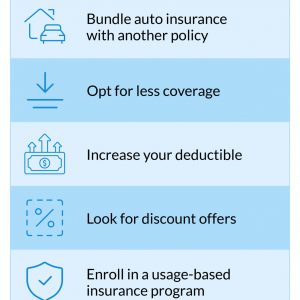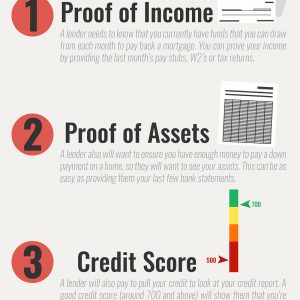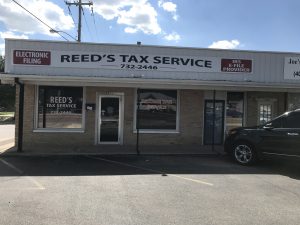“Stay on top of your self-employment tax to avoid surprises come tax season.”
Introduction
Self-employment tax is a tax that is paid by individuals who work for themselves and are not considered employees of a company. This tax is used to fund Social Security and Medicare programs, which are typically funded by payroll taxes for employees. Self-employed individuals are responsible for paying both the employer and employee portions of these taxes, which can be a significant expense for those who work for themselves. In this article, we will explore the basics of self-employment tax and what you need to know as a self-employed individual.
Understanding Self-Employment Tax: What It Is and How It Works
Self-employment tax is a tax that is paid by individuals who work for themselves. This tax is similar to the Social Security and Medicare taxes that are paid by employees, but it is calculated differently. Understanding self-employment tax is important for anyone who is self-employed, as it can have a significant impact on their finances.
Self-employment tax is calculated based on the net income of the individual. Net income is the amount of money that is earned after deducting business expenses. The self-employment tax rate is currently 15.3%, which is made up of 12.4% for Social Security and 2.9% for Medicare. However, only the first $142,800 of net income is subject to the Social Security portion of the tax.
Self-employed individuals are responsible for paying their own self-employment tax. This means that they must calculate their tax liability and make quarterly estimated tax payments throughout the year. Failure to make these payments can result in penalties and interest charges.
One of the benefits of paying self-employment tax is that it allows individuals to contribute to Social Security and Medicare. This means that they will be eligible for these benefits when they reach retirement age. However, it is important to note that self-employed individuals may need to pay more in taxes than employees, as they are responsible for both the employer and employee portions of the Social Security and Medicare taxes.
There are several deductions that self-employed individuals can take to reduce their self-employment tax liability. These deductions include business expenses such as office rent, equipment, and supplies. It is important to keep accurate records of these expenses in order to claim them on tax returns.
Self-employed individuals may also be eligible for the Qualified Business Income (QBI) deduction. This deduction allows individuals to deduct up to 20% of their net income from their taxable income. However, there are certain limitations and restrictions on who can claim this deduction.
It is important for self-employed individuals to keep track of their income and expenses throughout the year in order to accurately calculate their self-employment tax liability. This can be done using accounting software or by hiring a professional accountant. It is also important to make quarterly estimated tax payments in order to avoid penalties and interest charges.
In conclusion, self-employment tax is an important aspect of being self-employed. It is calculated based on net income and is used to fund Social Security and Medicare. Self-employed individuals are responsible for paying their own self-employment tax and must make quarterly estimated tax payments. Deductions and the QBI deduction can be used to reduce self-employment tax liability. Accurate record-keeping and professional assistance can help individuals navigate the complexities of self-employment tax.
Top Deductions for Self-Employed Individuals to Lower Their Tax Liability
Self-employment tax is a tax that is paid by individuals who work for themselves. This tax is in addition to income tax and is calculated based on the net income of the individual. Self-employed individuals are responsible for paying both the employer and employee portions of Social Security and Medicare taxes, which can add up to a significant amount. However, there are several deductions that self-employed individuals can take advantage of to lower their tax liability.
One of the top deductions for self-employed individuals is the home office deduction. This deduction allows individuals to deduct a portion of their home expenses, such as rent, mortgage interest, utilities, and insurance, that are related to their home office. To qualify for this deduction, the home office must be used exclusively for business purposes and must be the primary place of business.
Another deduction that self-employed individuals can take advantage of is the vehicle expense deduction. This deduction allows individuals to deduct the expenses related to the use of their vehicle for business purposes, such as gas, oil changes, repairs, and insurance. To qualify for this deduction, the vehicle must be used primarily for business purposes.
Self-employed individuals can also deduct expenses related to travel, meals, and entertainment. These expenses must be directly related to the business and must be ordinary and necessary. For example, if a self-employed individual travels to a conference to learn about new industry trends, they can deduct the cost of the conference registration, travel expenses, and meals.
Another deduction that self-employed individuals can take advantage of is the health insurance deduction. This deduction allows individuals to deduct the cost of health insurance premiums for themselves, their spouse, and their dependents. To qualify for this deduction, the individual must not be eligible for health insurance through an employer or spouse’s employer.
Self-employed individuals can also deduct expenses related to retirement savings. This includes contributions to a traditional IRA, SEP IRA, or solo 401(k). These contributions are tax-deductible and can help reduce the individual’s tax liability.
In addition to these deductions, self-employed individuals can also take advantage of the standard deduction and personal exemptions. The standard deduction is a set amount that individuals can deduct from their income without having to itemize their deductions. Personal exemptions are deductions for the individual and their dependents.
It is important for self-employed individuals to keep accurate records of their expenses and income to ensure that they are taking advantage of all available deductions. This includes keeping receipts, invoices, and bank statements. It is also important to consult with a tax professional to ensure that all deductions are being taken correctly and to avoid any potential tax issues.
In conclusion, self-employment tax can be a significant burden for self-employed individuals. However, there are several deductions that can be taken advantage of to lower tax liability. These deductions include the home office deduction, vehicle expense deduction, travel, meals, and entertainment expenses, health insurance deduction, retirement savings deduction, standard deduction, and personal exemptions. It is important for self-employed individuals to keep accurate records and consult with a tax professional to ensure that they are taking advantage of all available deductions.
Common Mistakes to Avoid When Filing Self-Employment Tax Returns
Self-employment tax is a tax that is paid by individuals who work for themselves. It is a tax that is paid on top of income tax and is used to fund Social Security and Medicare. Self-employment tax can be a confusing and complicated process, and many people make mistakes when filing their tax returns. In this article, we will discuss some common mistakes to avoid when filing self-employment tax returns.
One of the most common mistakes that people make when filing self-employment tax returns is not keeping accurate records. It is important to keep track of all income and expenses related to your business. This includes receipts, invoices, and bank statements. Without accurate records, it can be difficult to determine your taxable income and deductions. Keeping accurate records can also help you avoid audits and penalties.
Another mistake that people make when filing self-employment tax returns is not deducting all eligible expenses. As a self-employed individual, you are allowed to deduct expenses that are necessary and ordinary for your business. This includes expenses such as office supplies, equipment, and travel expenses. It is important to keep track of all eligible expenses and to deduct them on your tax return. This can help reduce your taxable income and lower your tax bill.
A third mistake that people make when filing self-employment tax returns is not paying estimated taxes. As a self-employed individual, you are responsible for paying your own taxes throughout the year. This means that you need to estimate your tax liability and make quarterly payments to the IRS. If you do not pay estimated taxes, you may be subject to penalties and interest charges.
Another mistake that people make when filing self-employment tax returns is not understanding the tax laws. The tax laws for self-employed individuals can be complex and confusing. It is important to understand the tax laws and regulations that apply to your business. This can help you avoid mistakes and ensure that you are paying the correct amount of taxes.
Finally, another mistake that people make when filing self-employment tax returns is not seeking professional help. If you are unsure about how to file your tax return or have questions about the tax laws, it is important to seek professional help. A tax professional can help you understand the tax laws and regulations and can help you avoid mistakes that could result in penalties and interest charges.
In conclusion, self-employment tax can be a complicated and confusing process. However, by avoiding common mistakes such as not keeping accurate records, not deducting all eligible expenses, not paying estimated taxes, not understanding the tax laws, and not seeking professional help, you can ensure that you are filing your tax return correctly and avoiding penalties and interest charges. By taking the time to understand the tax laws and regulations and seeking professional help when needed, you can ensure that you are paying the correct amount of taxes and keeping your business running smoothly.





